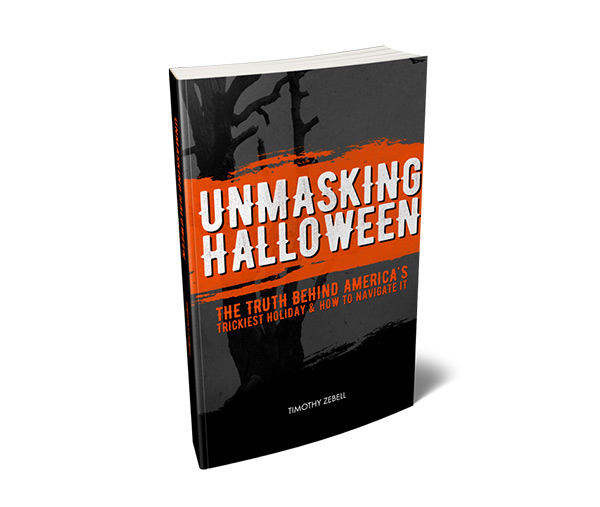
For most of my life, I’ve heard, and even preached, statements like these:
“The real answers for our nation aren’t in Washington D.C.!”
“Political solutions will never heal America.”
“It’s not about the White House, it’s about your house.”
“Elections and Presidents can’t save us, only prayer can save us now.”
Such declarations affirm that the issues we face are spiritual, not just legal. Laws and leaders don’t have heart-transforming power, the way the gospel does. And so, we affirm, priority #1 is always the gospel. Yes, we should pray. Yes, we should trust God. Yes, we should fight against spiritual darkness rather than flesh-and-blood.
But here’s where I think those statements miss the mark, where they leave part of the story untold. And I think their misapplication has given false cover for many Christians to sit passively on the sidelines, as the great decisions of our time pass them by.
Part 1 of my theory is pretty simple: Leadership matters a lot to God!
And if leadership matters, then so does politics – since our nation is led by politicians, their parties, and their platforms. If we choose to pro-actively engage, we can have a voice, a vote, and perhaps even a shot at being elected to office ourselves. That’s our system, for which I’m grateful (considering other options humanity has tried throughout history).
“Wait, Dan, are you saying the answer is actually in Washington D.C.? And it actually DOES matter who’s President, or who’s a Senator, or Governor, etc.?”
Biblical Proof Politics Matters
In the Bible, when God wanted to speak to a nation, to direct its course, to call it to repentance, or even to announce judgment upon it, who did He talk to? Who did He send the prophets to confront?
That’s right – the kings. The leaders. Whether to Nebuchadnezzar to Jezebel, or to a host of others, God directed His Word for nations to key leaders – even terrible leaders! During times when the leadership was good (like David, the Pharaoh of Joseph’s day, Daniel, Josiah, or Ezra), and times when leadership was bad (Ahab, Belshazzar, Saul, Jeroboam, the Pharaoh of Moses’ day) we see the people being led by their leader either toward salvation and righteousness or very, very far away from it. The way the leaders went, the people mostly followed, at least for a generation. I wish we humans weren’t so predictable, but observe for yourself. Leaders set the pace for the process more often than not.
So, let me press my point: Why is almost the entire Old Testament a story about national leaders? Why does so much of the Law concern the governance of Israel? Why did God dedicate so much of the Bible to prophetic words, aimed directly at the representative heads of nations?
“Yes, Dan, but political change isn’t what we need. We really need spiritual awakening and revival in America.”
Let’s dive deeper into our theory, and look at biblical revivals. Take the book of 2 Chronicles, for example. There seem to be at least five periods of specific national renewal and revival discussed in that book:
- When King Solomon dedicated the new temple to the Lord, there was a powerful display of God’s presence (chapter 7).
- Revival under King Asa, who wanted to please God and had all of the pagan shrines destroyed, and then commanded his people to seek God instead (chapter 14).
- Revival under King Jehosophat, who commissioned a national Bible teaching tour and restored the kingdom to proper worship. Even surrounding nations felt the fear and presence of God (chapter 17).
- Revival under King Hezekiah, who sent runners throughout the land imploring people to return to God and to attend a massive Passover celebration (chapter 30).
- Revival under King Josiah, who found the Books of the Law in temple ruins and had the whole nation gather to hear God’s Word, purify themselves, and set course to obey the Lord (chapter 34).
The kings weren’t optional add-ons in these stories – they were the central characters! (Also note: when the nation took turns for the worse, it was often a bad king leading forth in debauchery, corruption, and idolatry).
And, there’s more! The stories of leaders initiating God-ward movements don’t only come from Israel. Secular, pagan empires also experienced spiritual awakenings in Scripture – and once again, we see the national leadership very involved in the story line:
- Jonah preached in Nineveh, and the king repented and sent word to his entire city that they should join him in repentant prayer and confession.
- Daniel taught the truth to Nebuchadnezzar and Darius, and throughout the land decrees were sent forth for all to reverence Daniel’s god, the true God!
Beyond those accounts, I think even brief perusal of the prophetic books of the Old Testament (Isaiah, Jeremiah, Ezekiel, Joel, etc.) will offer similar evidence for what I’m suggesting. Leaders don’t just represent their nations, they steer them. They influence their people, which is, after all, the very definition of leadership. That’s why prophets were so often sent to kings.
What I’m Not Saying
- I’m not saying that political leaders are necessary for spiritual renewal. The American Great Awakenings, the mighty mission-movements of the past 30 years in the Third World, or even the early church “awakening” in Acts do not strike me as politically involved at all. They began with the church.
- I’m not discounting the value of grassroots people-movements, especially in a democracy. You can agitate for change effectively as a citizen (although it still takes a leadership post to implement change).
- I’m not saying that having good leaders replaces our need to be good people. The character of a nation is defined by the character of its people, not just its point person. That’s for better and for worse, I guess.
- I’m not saying politics will solve spiritual problems. They won’t. You can be just as lost as a Democrat or a Republican, just as deserving of God’s judgment, and just as much in need of a Savior.
But I am saying that politics shouldn’t be waved off dismissively as a non-solution, or as a waste of time. It is a path God can use for good, and we can be praying for that. This all matters to God, because it involves the leadership of people He loves. And on that basis, I think it should matter to us.
Think of it this way:
Leaders set the direction. In America, we’ve been blessed with the power to have a say in the direction of things because we are a representative republic – meaning that we can vote for and influence our political representatives, who can then influence the whole nation. Do you think it would honor God for Christians to help set the direction of the nations in which they live?
Leaders set the standards. The leaders we select politically are the ones who will write/execute the laws that define the morality and functionality of the nation. Should drug use land a person in prison? Is the killing of an unborn baby a murder or a woman’s right? To what extent should environmental concerns supersede industrial productivity? What is the penalty for taking a bribe, or committing fraud? How is private property protected, and how are contracts enforced? Who decides what infrastructure for the nation should be privately vs. publicly funded? How should taxes be collected, and from whom? Through voting and participation, you have the power to help the nation answer these and countless other important questions. Do you think it would honor God for Christians to help set the standards for their nations?
Leaders set the pace. Leadership of any organization has a way of encouraging certain trends and behaviors. For example, should I really be saving for the future? Is it worth starting a business right now? Is there hope for a better tomorrow? Can we really get ourselves out of the mess we are in? Is there a reason to be optimistic? Is this a sunrise or a sunset? These aren’t “legal” or “operational governance” issues – they are inspiration issues. Leaders set the pace for how we all see the world. When we engage in political processes, we help shape the spirit of our nation, and, obviously, its economic, defensive, and legal direction as well. Do you think it would honor God for Christians to help set the pace for their nations?
Part 2 of my theory: Leadership matters a lot to God, AND our American system of government entrusts each of us with a sliver of that leadership.
We will rarely (if ever) get everything we wish for out the people selected to represent us. Every candidate will be fallible, because we are fallible. That doesn’t make me want to engage less, rather, it compels me to engage even more.
I can’t sit on the sidelines or cynically disconnect from elections that don’t meet my ideals. I have a feeling that if I let cynicism get the best of me, I’d never be able to vote again – maybe not even for myself!
So, my plan is to vote in every election I can, to take my “sliver of leadership” and do the best I can with it, given the decidedly imperfect situation in which we humans find ourselves. I’ll do that not only for my own good, but for the love of my neighbor, the love of my family, and the love of my nation’s future. If you and I don’t lead on Election Day, others will. And come to think of it, that’s also true on every other day. We better get started!






